Sustainable Banking Stories That Give Us Hope
Updated November 29, 2023 by Neil Simpson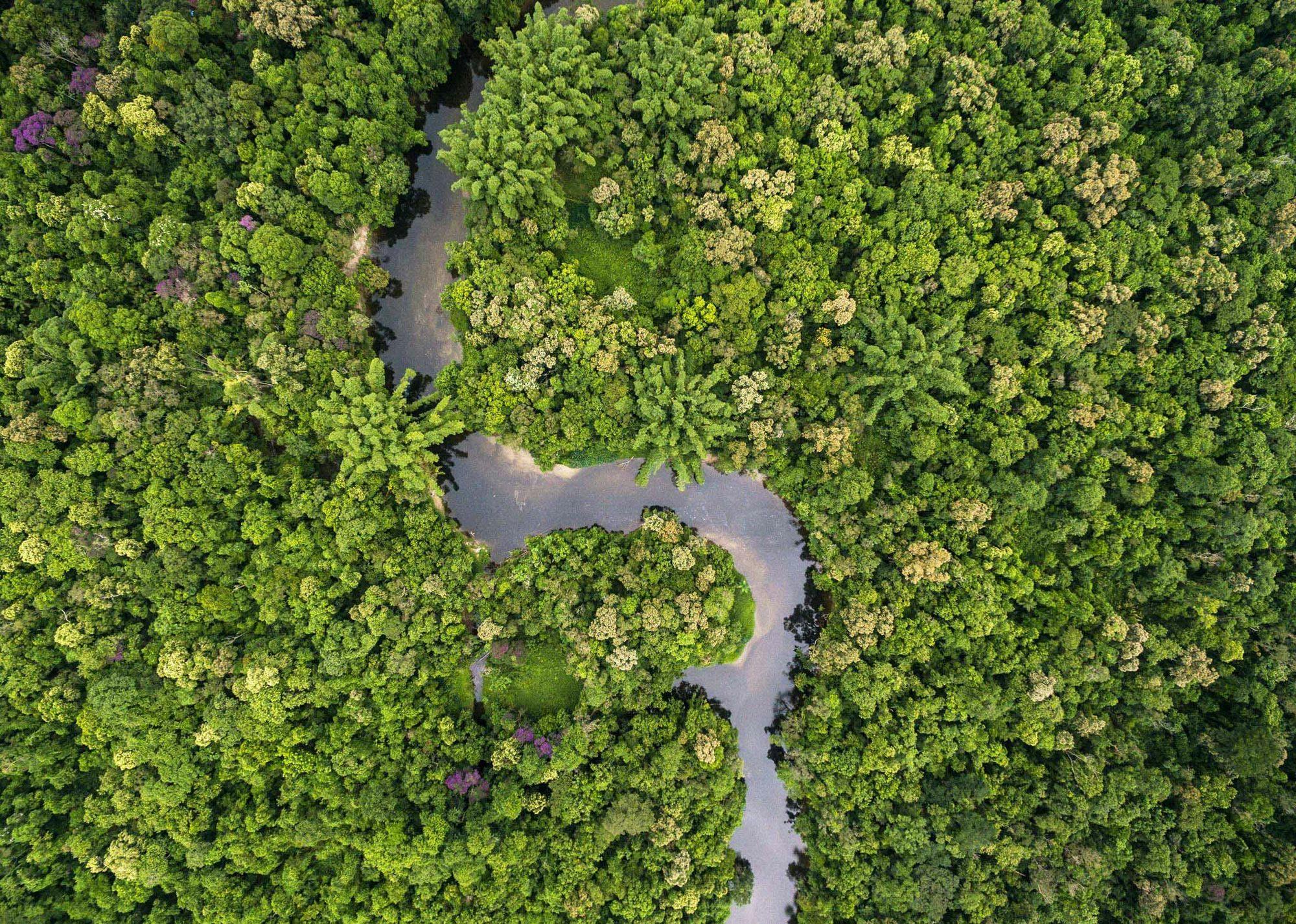
Pará, Brazil © Climate Partner
Contemplating the vast sums of money that are being mobilized by our biggest banks for a fossil-fuelled future is... aggravating – to put it mildly. Although it is crucial to confront these activities head-on, it can all become a bit distressing. There’s only so much bad news a person can take before the tequila comes out.
Thankfully, there is also a lot of good banking news out there. It might not seem like it, but there are millions and millions of talented people all over the world who are determined to mitigate climate change. Indeed, some of them even run banks.
We’re profiling some of that good news here, collected from a clutch of courageous banks that are doing things differently. If you already entrust your money to a sustainable bank, these are the type of initiatives that you’re powering right now. And if you’re still not sure? Then we hope these stories inspire you to move your money.
Reach for the Skyview
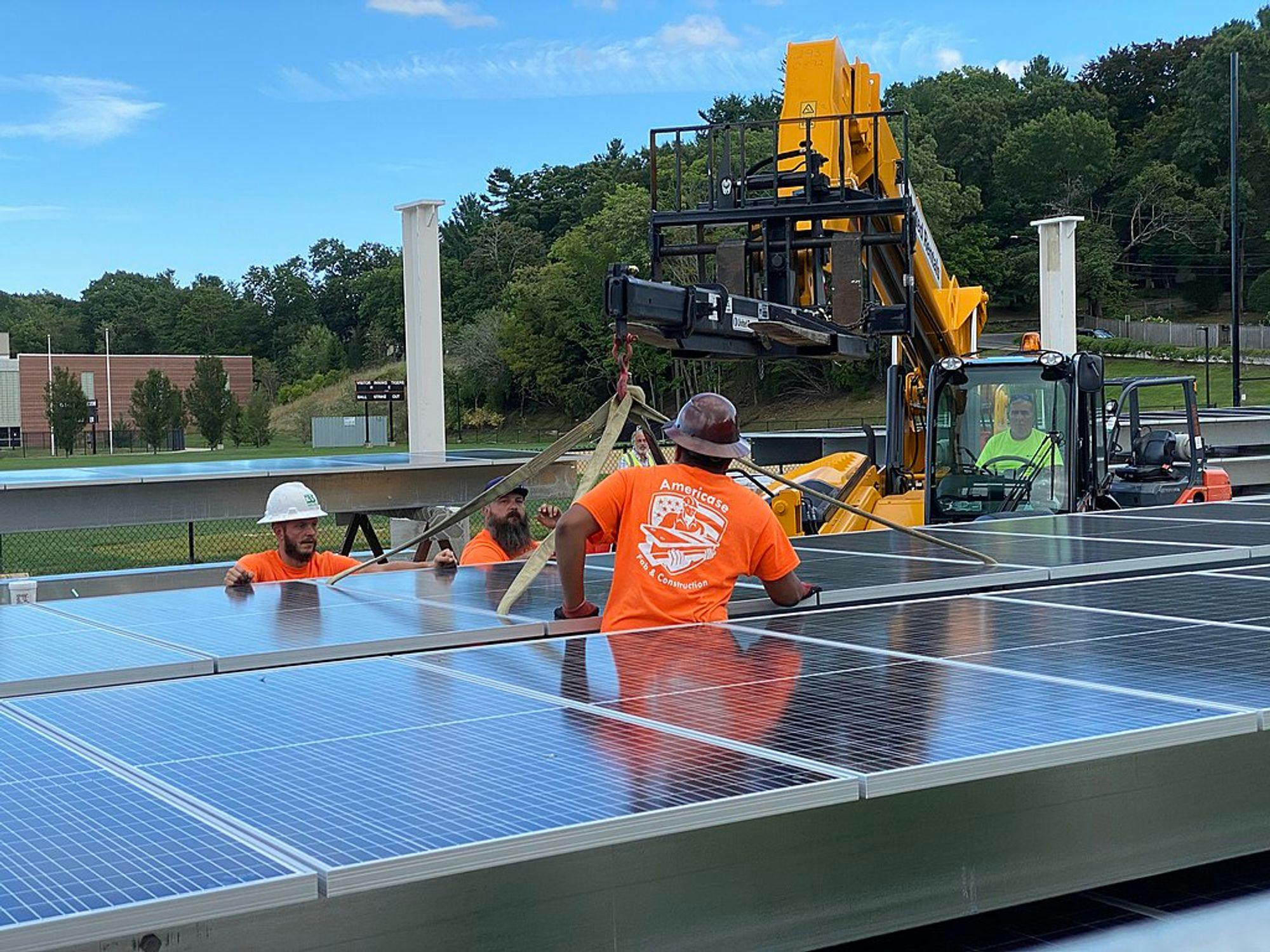
Arnold Reinhold, CC BY-SA 4.0 https://creativecommons.org/licenses/by-sa/4.0, via Wikimedia Commons
Bank: Ando
Initiative: The U.S. bank Ando states that 100% of customer deposits are used in the fight to mitigate climate change, which is a pretty good place to start if you’re in the market for a sustainable bank.
Due to the high cost of solar in the U.S, Ando is helping to make solar power possible for American charter schools and low-to-moderate income communities.
Initiatives such as the District of Columbia’s Solar for All provide grants to local solar panel installation companies, but these solar energy outfits may only apply for more Solar for All funds once they have completed their most recent project. This creates a gap in funding, which makes it tricky to hold on to staff and keep these installation companies going. To solve this, Skyview Ventures buys solar facilities at a pre-negotiated price and makes them available to solar panel installation companies: no more waiting.
This month, Ando also launched Divest 101, which is pushing for college divestment by listing those U.S. colleges that have divested from fossil fuels - and those that have not.
Ando is a founding member of our new Fossil Free Banking Alliance, which is designed to make it easier to find a climate-conscious bank.
Who can bank with Ando? U.S. citizens aged 18 or over.
Success to the power of 6
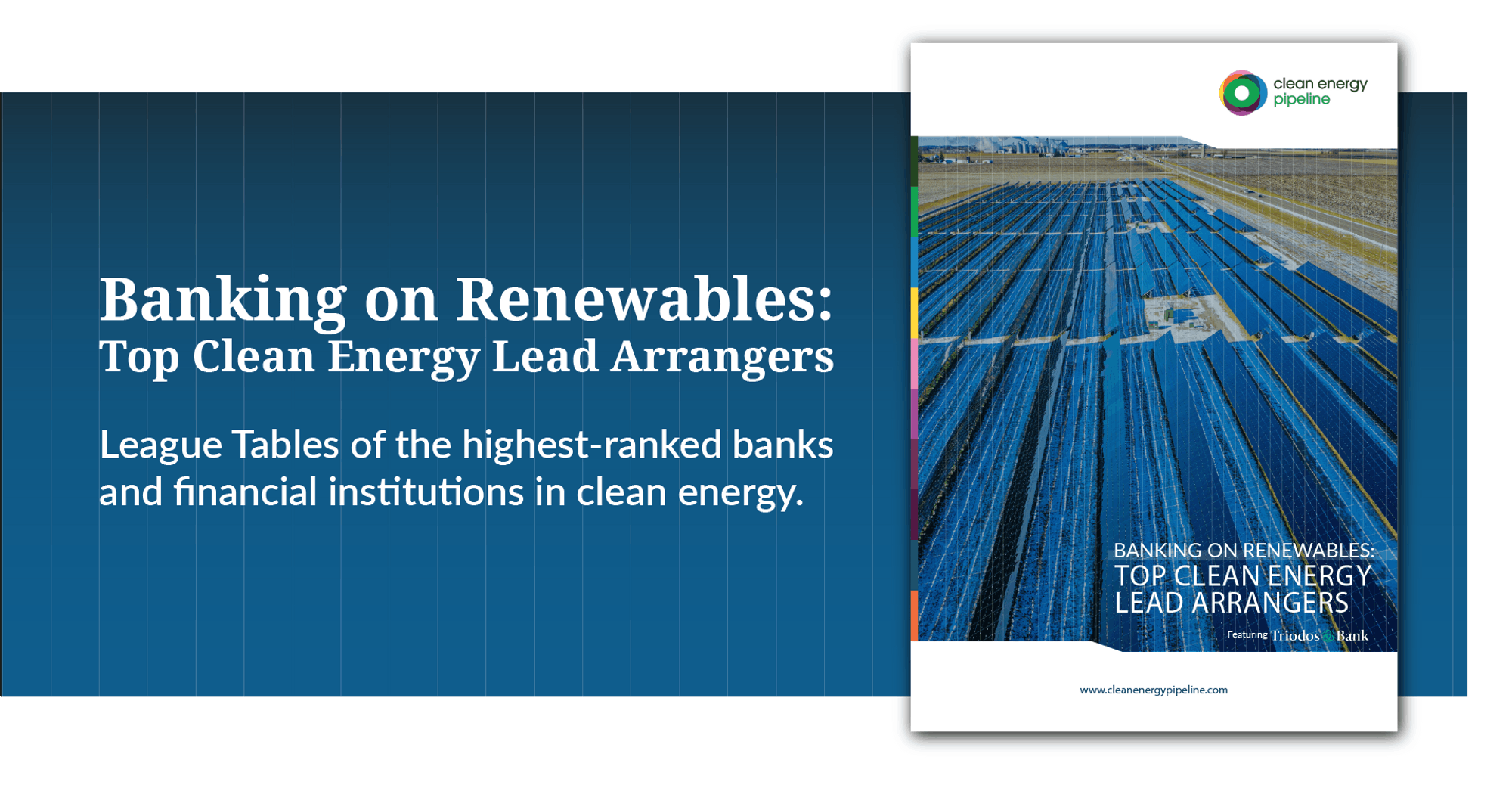
Clean Energy Pipeline’s 2021 League Table © Clean Energy Pipeline
Bank: Triodos Bank
Initiative: Founded in 1980, Triodos has gradually spread from its base in the Netherlands, to Belgium, the UK, Spain, and Germany. The banking group’s largest portfolio is renewable energy, so it’s perhaps not surprising that Triodos has financed more renewable energy projects per year than any other bank in the world, six years in a row.
This ranking is the work of Clean Energy Pipeline, which is one arm of the UK’s Venture Business Research media group. In 2020, Triodos financed 69 renewable energy projects, representing “a total volume of 433 million U.S. dollars”.
As well as being the most active lead arranger for renewable energy in the world, Triodos says it’s currently concentrating on providing more support for projects that decentralize power grids. That means projects such as rooftop solar panels and energy storage, which provide local communities with energy autonomy.
Who can bank with Triodos? Residents of the United Kingdom, France, Belgium, Spain or the Netherlands.
Read more (This page is written in German, but your browser should offer a translation)
It's always sunny in Appalachia
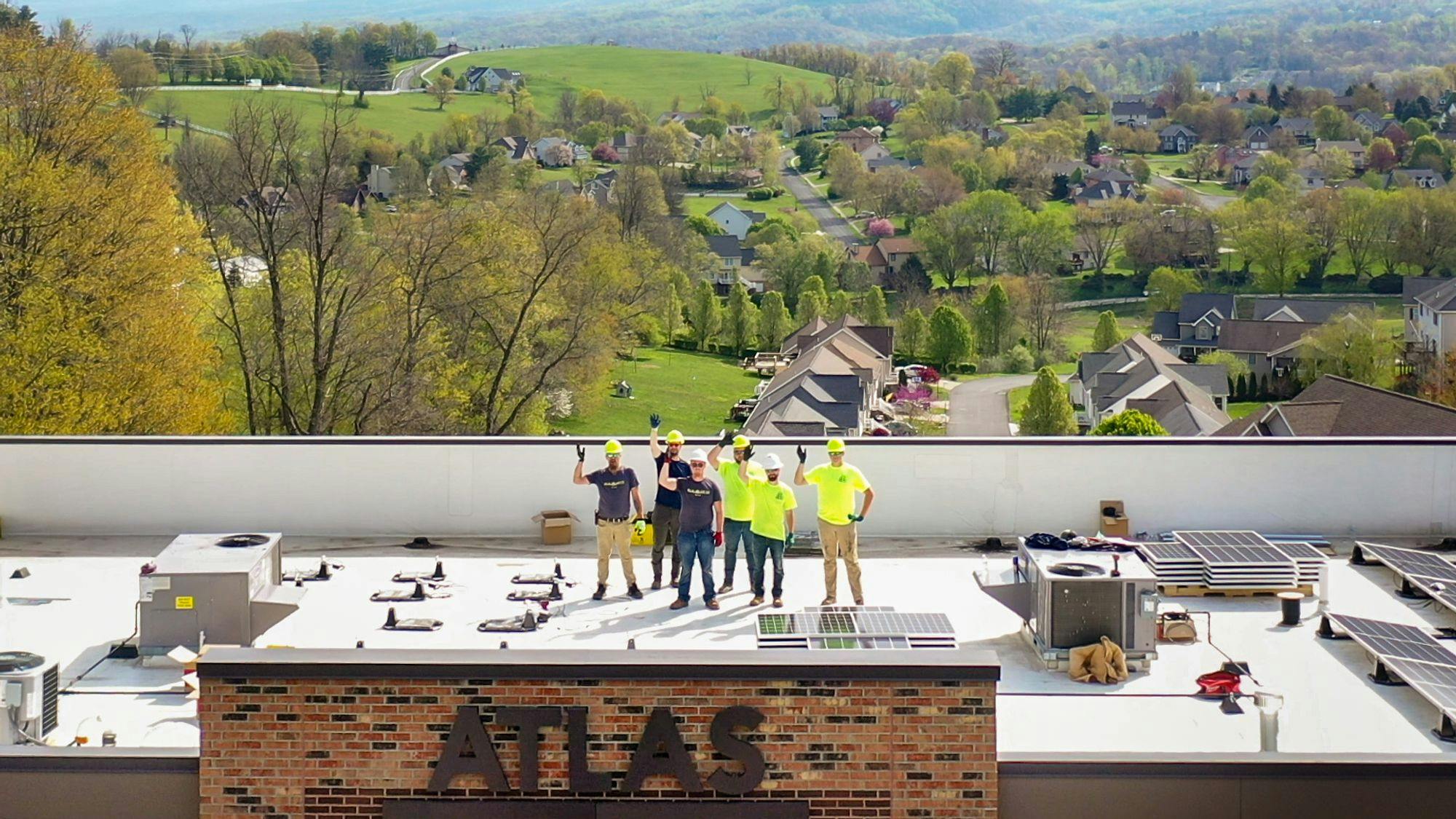
Solar Holler technicians © Solar Holler Inc.
Bank: Amalgamated Bank
Initiative: Amalgamated specializes in environmental non-profits and the solar power industry, claiming to be ‘the first American bank to divest from carbon risks across our own lending and investment holdings’. One such company that benefits from Amalgamated’s loans and treasury management services is Solar Holler, which operates in North America’s Appalachia region.
Appalachia is a cultural region that stretches from New York State down into Georgia and Alabama. It brims with natural resources and has therefore endured generations of logging and coal mining. These industries have not resulted in prosperity for many localities, however.
Solar Holler puts power back into the hands of local communities by enabling the spread of solar power, via funding schemes, training, and apprenticeships. Solar Holler also sources its solar panels from a factory in Georgia that employs more than 1,000 locals, rather than going for cheaper options from China.
Who can bank with Amalgamated? U.S. citizens or U.S. resident aliens; branches in New York, San Francisco and Washington D.C.
Swapping logs for açai
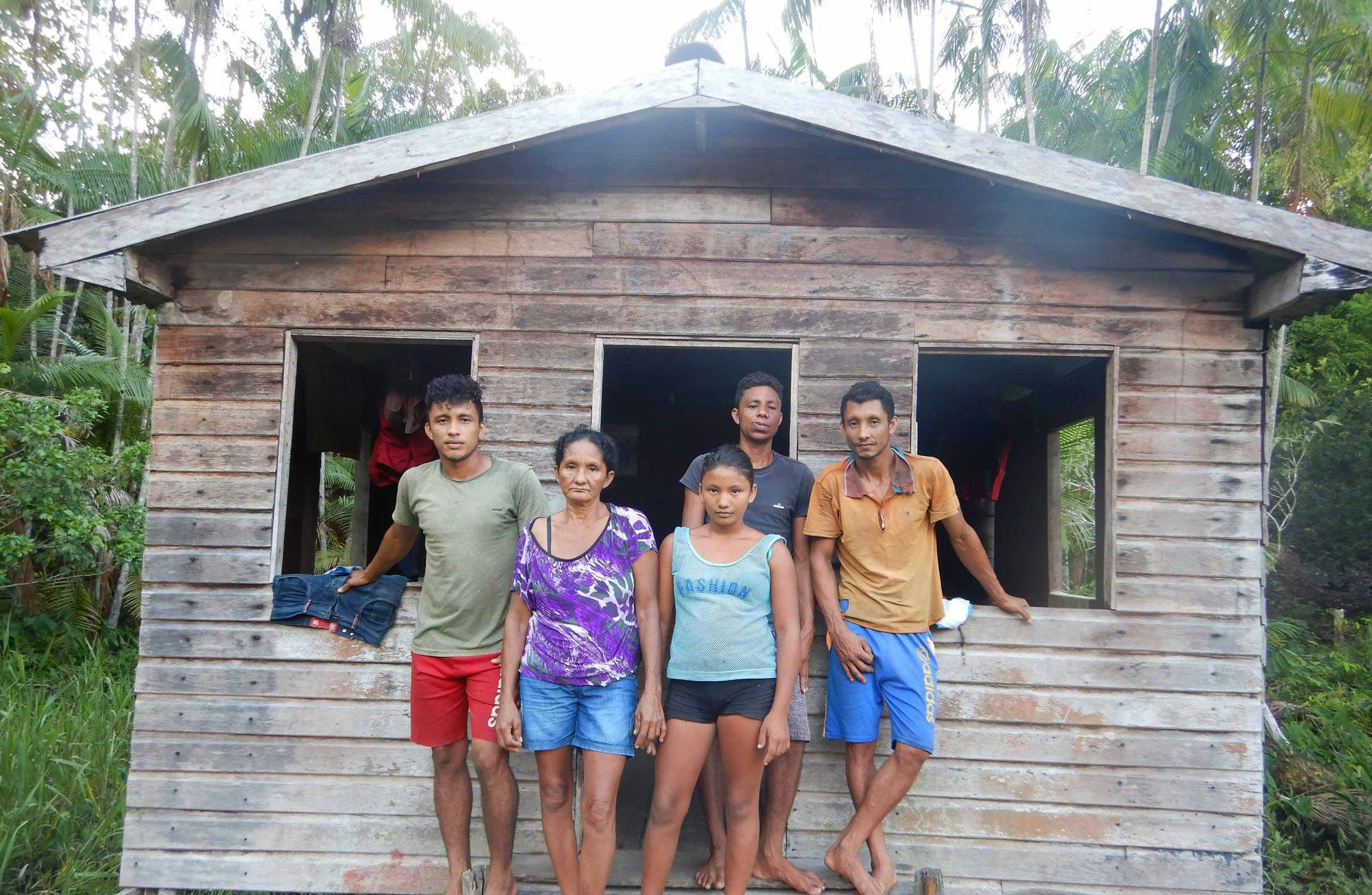
Beneficiaries of the Ecomapuá Project in Pará, Brazil © Climate Partner
Bank: Tomorrow
Initiative: Hamburg-based Tomorrow harnesses “Interchange fees” to support forest conservation in northern Brazil. An Interchange fee is a small charge requested by your bank from any seller that processes a card transaction you make. Tomorrow chooses to invest most of its Interchange fees into projects that benefit the climate.
In other words, when you buy a coffee for three Euros with a Tomorrow debit card, the resulting Interchange fee protects 3m² of Brazilian rainforest. This initiative is managed by Climate Partner, a multinational climate action organisation. Tomorrow funds Climate Partner’s Ecomapuá Project, which is based in the Brazilian state of Pará and conserves 90,000 hectares of forest that are vulnerable to logging.
The Ecomapuá Project enables local families to avoid logging and instead make a sustainable living, for example by trading the local açai berries.
Who can bank with Tomorrow? Official residents of Germany, Belgium, Estonia, Finland, Greece, Ireland, Italy, Latvia, Lithuania, Luxembourg, Malta, the Netherlands, Austria, Portugal, Slovakia, Slovenia, Spain or Cyprus, aged 18 or over.
Read more (This page is written in German, but your browser should offer a translation)
Manure for the Maases
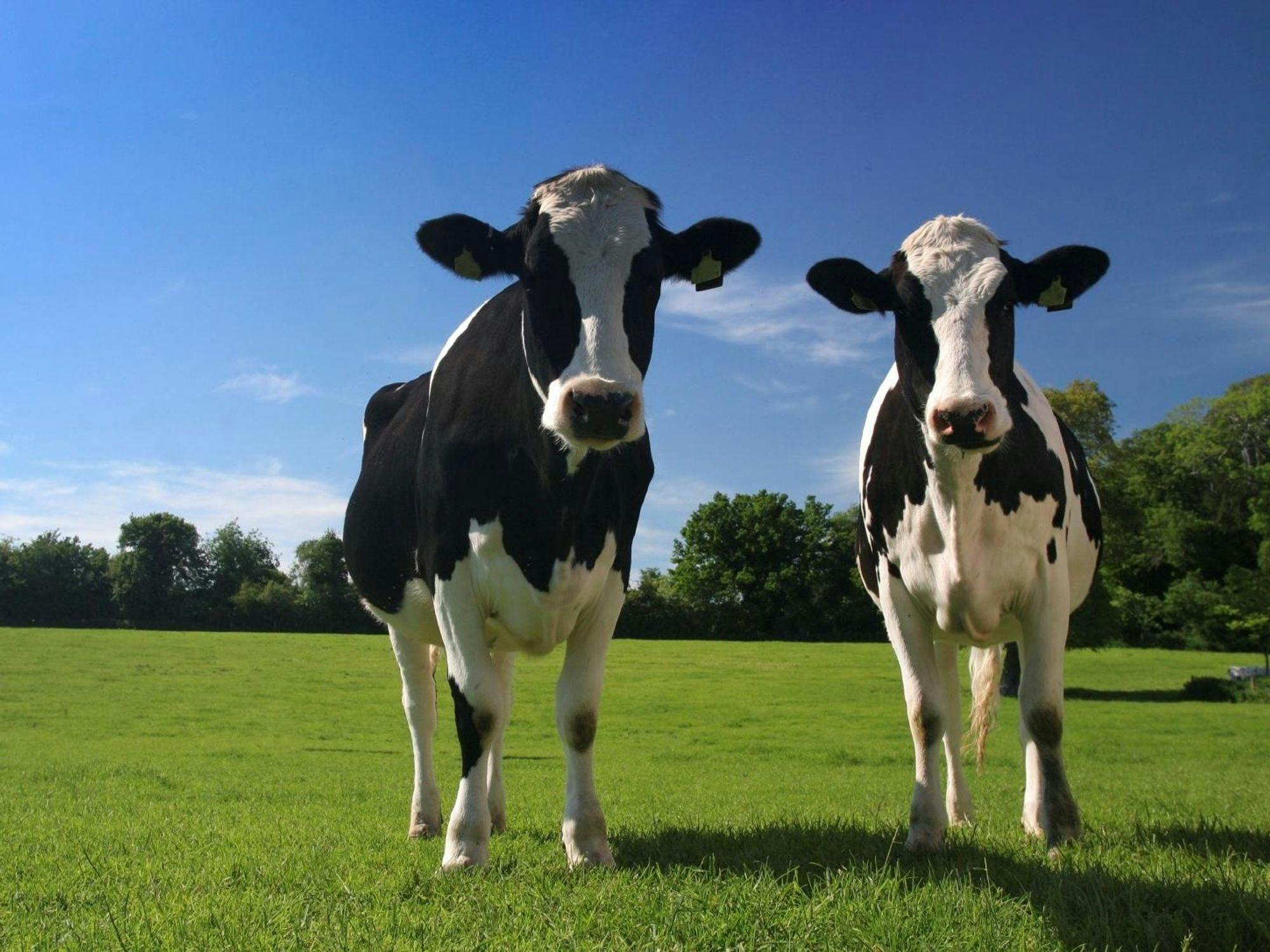
Four-legged electricity source © Farm Power Northwest
Bank: Beneficial State Bank
Initiative: Beneficial financing kickstarted Farm Power Northwest in 2007. Founded by brothers Daryl and Kevin Maas, Farm Power creates renewable energy from cow manure in Washington and Oregon. The company uses anaerobic manure digesters in a process that mimics a cow’s stomach, allowing the methane gas that manure releases to be used to generate electricity.
The Maas brothers came up with the idea in response to major threats to their dairy farm in Skagit County, Washington, including decreasing milk prices and real estate development; many of their farming friends and neighbours had already been forced out of business. Each anaerobic manure digester is shared between a community of small farms, all of which benefit from cheaper cow bedding, a simpler way to handle manure, better fertilizer, and renewable energy that can be sold to the grid. These farms are also mitigating climate change by capturing and reusing methane, a potent greenhouse gas that would otherwise be released into the atmosphere.
Today, Farm Power Northwest has evolved to become Maas Energy Works, which expanded to California in 2010 and now operates more than 35 digesters in North America. When they started out with this idea, the Maas brothers were rejected for finance by banks that didn’t understand the opportunities of renewable energy, until Beneficial stepped in. It proves that sustainable banking can literally change communities.
Alongside Ando and six others, Beneficial State is another founding member of our new Fossil Free Banking Alliance.
Who can bank with Beneficial State? U.S. citizens or U.S. resident aliens aged 18 or over; branches in California, Oregon and Washington State.
Be a part of the solution
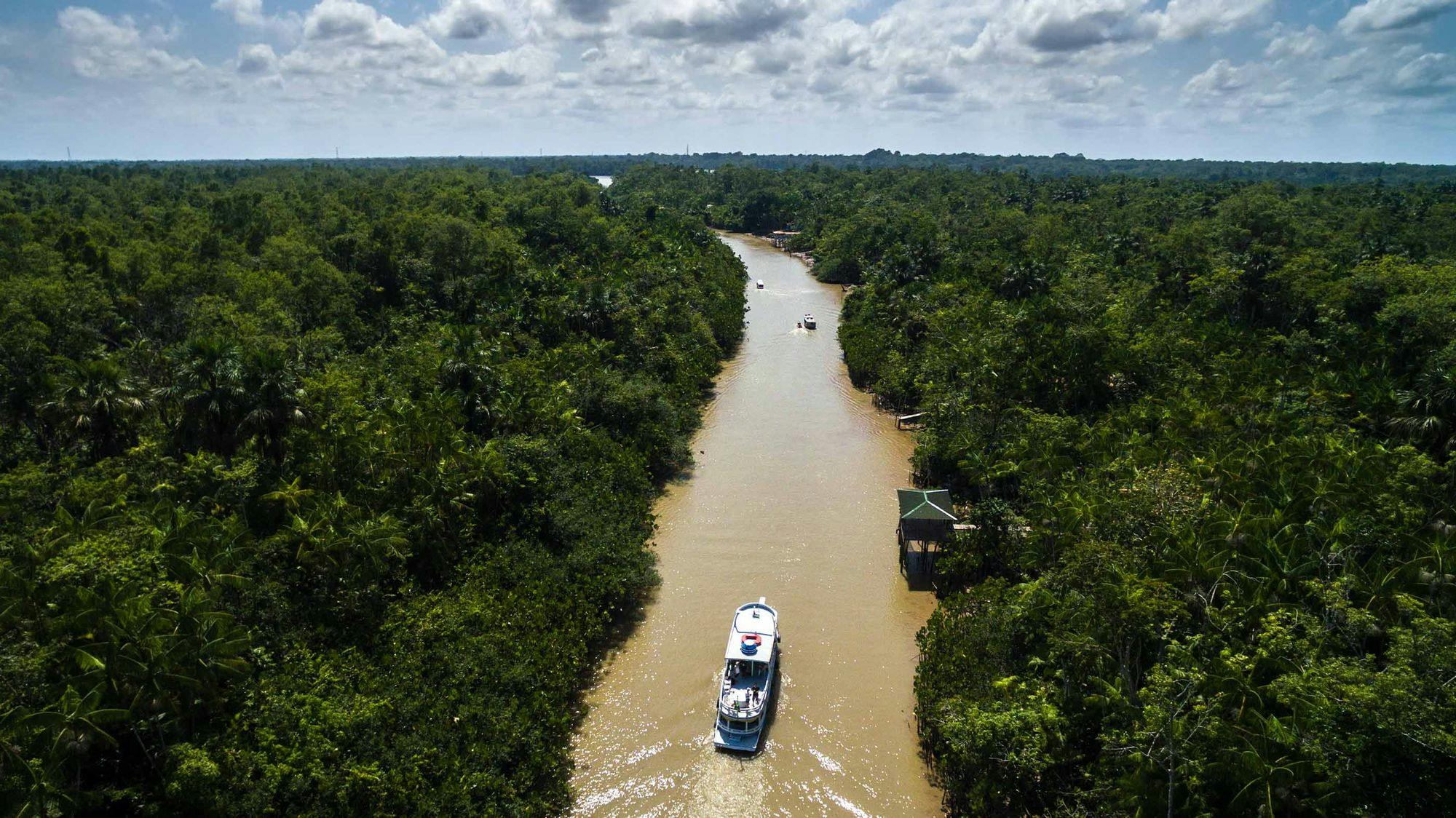
Pará, Brazil © Climate Partner
See? There is a lot of great financing going on in the world - and it’s growing every day. Brilliant people with grand visions are mobilizing. A fossil-free era is approaching, but we need to get there as quickly as possible.
If we’ve inspired you to join us, get started with our bank-checking tool and find out how your own bank fares. Take a screen shot of your results and share your joy/disgust online - don’t forget to tag us so we can celebrate your action with you.
Fired up and ready to confront your fossil-funding bank? Then step right this way to our Take Action pages.
Start to Bank Green Today
Banks live and die on their reputations. Mass movements of money to fossil-free competitors puts those reputations at grave risk. By moving your money to a sustainable financial institution, you will:
Send a message to your bank that it must defund fossil fuels
Join a fast-growing movement of consumers standing up for their future
Take a critical climate action with profound effects